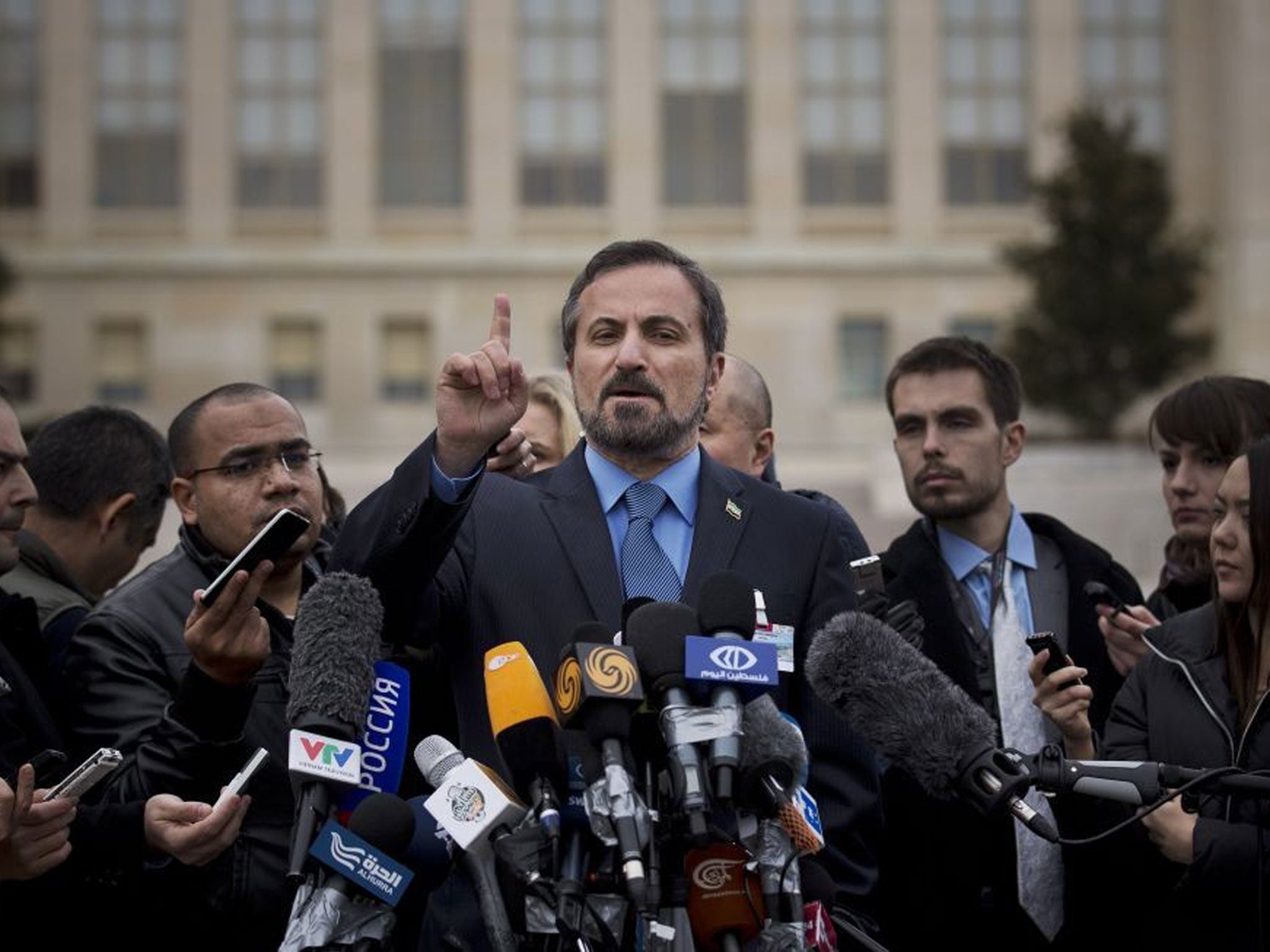Syria Geneva II talks: Breakthrough in sight with humanitarian corridor that could see aid convoy heading to Homs within 48 hours

Humanitarian aid reaching desperate people trapped by the fighting could be the first tangible step in the talks between the regime and rebels in Syria, with a convoy moving to besieged Homs within 48 hours.
The news of the possible breakthrough came as the two opposing sides met for the first time since the start of the savage civil war entered its third year, at a cost of more than 130,000 killed and almost six million driven to become refugees inside and outside the country.
Work to set up the corridor to Homs, a city which has symbolised the terrible suffering brought by the relentless violence, has been going on behind the scenes by the Americans and the Russians. The International Committee of the Red Cross ( ICRC) are said to be ready to deliver food and medicine as soon as it gets clearance from the Damascus regime - something which may happen relatively quickly, say diplomats, with the Kremlin keen to push the effort ahead.
There is also a likelihood that the regime may start to release large numbers of prisoners as part of an exchange deal. Unconfirmed figures of 5,500 had been mentioned; opposition officials say they will demand the release of activists detained in Syria and may ask some of them to join the negotiations.
If progress is made in such “confidence building measures”, especially on humanitarian corridors, the two sides will start the groundwork for forming a transitional administration for Syria, according to diplomatic sources.
The UN mediator for the talks, Lakhdar Brahimi, reported at the end of the day: “We hope that a convoy can go into the old city of Homs with food and non-food items in the next week. Discussions are taking place in Homs involving the governor."
The next session would discuss the issue of prisoners. Asked at a press conference whether the focus is too much on those being held by the regime and not on kidnappings by rebels, Mr Brahimi responded: “We are not saying who is responsible for what. But isn’t it the case that thousands of prisoners are being held by the government? The UN has asked for the release of women and children. But we are talking about thousands who have lost their freedom in the hands of all sides.”
The two teams at the negotiations sat in close proximity at a horseshoe shaped table. However, they have refused to speak to each other during the day’s two sessions, addressing all remarks through Mr Brahimi. This format will continue unless the protagonists have a change of heart. “That will be too much to hope for at this stage” said a Western official. “We should be pleasantly surprised they are not actually trying to brain each other with the chairs.”
Monzer Akbik, chief of staff to the leader of the opposition, stated: “Today we had the chance to speak to the regime. You know dictators usually, they don’t like to listen. But today they had to listen to us and the voice of the Syrian people that they want transition from dictatorship to democracy.”
Anas al-Abdah, a delegate for the opposition, proposed a ceasefire in the Homs area at the talks, to allow the aid to get through. He said outside the conference room: “We have spoken to the Free Syrian Army and they have agreed to a ceasefire and we have been liaising with the Red Cross. It is up to the regime now to agree to a ceasefire, this will be a test of their commitment. It’s not just people in the opposition areas who are suffering, so are the people who are loyal to the regime. I am cautiously optimistic that a ceasefire will take place.”
Everyone involved with the talks have repeatedly stressed the sheer difficulty in making progress. The problems were highlighted by the stance of the regime’s information minister, Omran Zoabi, who rejected the very notion of a transitional government - the key target of a communiqué issued after a previous meeting on Syria on which the current negotiations are based - before the first session had started.
“We have complete reservations regarding it. Syria is a state with institutions. A transitional governing body happens where the state is in disintegration, or has no institutions. There is an enormous gap on this; those who talk about President Bashar Assad are talking about removing the man who is leading the war against terrorism”, he declared.
The acrimony and bitterness which has accompanied the escalating violence on the ground was never far from the surface in the conference at the United Nations headquarters in Geneva. Mr Al Abdah said: “It was not easy for us to sit with the delegation that represents the murderers in Damascus, those with blood on their hands, but we did it for the sake of the Syrian people and for the sake of the Syrian children”.
Bashar Jafari, Syria’s ambassador to the United Nations, accused members of the opposition delegation of harbouring “personal hatred for the government, for whatever reason, they are showing this hatred. We should all have one agenda, how to serve the interests of the Syrian people, how to rebuild our country on a solid basis and how to go forwards achieving the aspirations of the Syrian people.”
Join our commenting forum
Join thought-provoking conversations, follow other Independent readers and see their replies
Comments